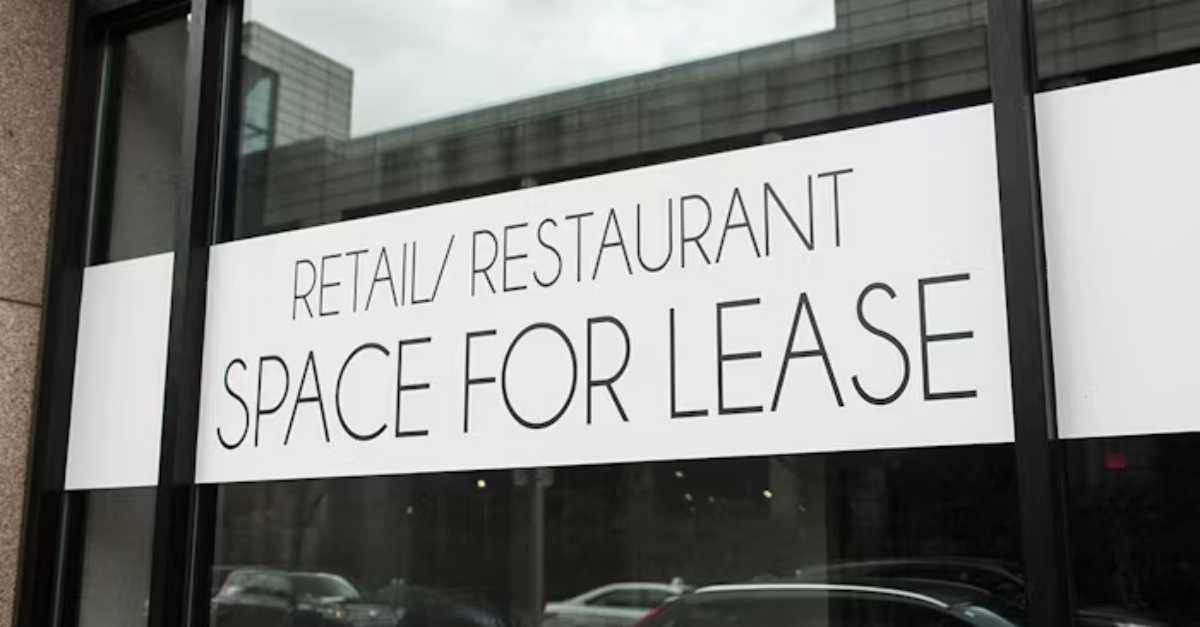
Expand your Store's Revenue Weeks with a Site Selection Tool
Learn how you can strategically plan for where you’d like to expand with Real Estate Planner, a tool for crafting expansion plans to support your ...
Solutions
Workplace Management Solutions
Real Estate Management Solutions
Maintenance Management Solutions
Energy Management Solutions
Engineering Document Management Solutions
Asset Management Solutions
Automate campus scheduling for classes, meetings, and exams with our EMS software.
Plan and manage conferences effortlessly with EMS software to impress guests and streamline operations.
Boost workplace flexibility and maximize space use with seamless desk and room booking.
Organize workplace or campus events smoothly, creating memorable experiences.
Optimize workspace, manage allocations efficiently, and reduce costs with our space management solutions.
Deliver projects on time and within budget by improving communication, collaboration, and efficiency with our software.
Streamline lease accounting for ASC 842, IFRS, and GASB compliance.
Manage leases efficiently by tracking key dates, analyzing costs, and ensuring compliance.
Centralize data and analytics for better insights, faster negotiations, and revenue growth.
Centralize facility and asset maintenance, automate work orders, and ensure compliance with our CMMS software.
Extend asset life, reduce downtime, and prevent costly repairs with data-driven monitoring.
Prevent equipment failures and extend asset life by detecting and addressing issues early.
Make sustainable, cost-efficient energy decisions by monitoring and optimizing power consumption.
Remotely monitor and control equipment with real-time data to predict issues, boost efficiency, and reduce downtime.
Easily share and collaborate on documents, creating a single source of truth for engineers and contractors.
Manage and analyze assets across their lifecycle to schedule maintenance, reduce downtime, and extend lifespan.
Improve visibility, automate work orders, and ensure compliance for efficient facility and asset management.
Resources
Browse our full library of resources all in one place, including webinars, whitepapers, podcast episodes, and more.
Support
Looking for access to technical support, best practices, helpful videos, or training tools? You’ve come to the right place.
About Accruent
Get the latest information on Accruent, our solutions, events, and the company at large.

Explore the important roles that site selection and construction project management play in achieving strategic growth in the retail industry.
The rapidly changing and often unpredictable retail landscape presents dynamic challenges, ranging from operational - supply chain disruptions and labor shortages – to technological, such as the proliferation of new technologies that change how customers shop for and pay for products and services. Organizations are being forced to adapt quickly and do more with less, leaving little margin for error.
In this environment, leveraging efficient and sustainable growth strategies is key to achieving scale and remaining competitive. Effective commercial property selection and efficient construction project management play an integral part in this process. In this article, we will explore these processes and the roles they play in helping retailers to achieve strategic growth.
Choosing the right location involves more than just pinpointing your target audience's whereabouts. It requires a deep understanding of the industry, your consumers, the competition, and logistical aspects that can influence whether a new location is ultimately successful. The following are 4 critical factors to consider during the commercial property selection process.
Choosing a location that is easily reachable by your target audience is obviously important. But how can you determine whether a site is accessible or not? The answer to this question depends on several factors, such as your target audience’s needs and preferences and the density of the neighborhood.
For instance, if you are seeking a retail location in a suburban area, proximity to one or major roads and visibility from the road is crucial. However, if your store is in a densely populated area, proximity to high-rises, public transportation, and even other stores that your target audience regularly visits, such as a bank or a gym, will factor into your decision.
Assessing the presence and performance of competitors in the vicinity can provide valuable insights. Are there gaps in the market that your brand can fill? Are there synergies to leverage? Likewise, are there more established brands that offer similar products and services? If so, you will not only share the market but will also need to offer a unique competitive advantage for customers to choose your store over others.
Considering parking logistics is critical to ensuring that your store is accessible to your customers. A lack of parking or inconvenient parking arrangements can deter potential customers, while ample and well-organized parking can generate foot traffic. In densely populated areas like New York City where many customers walk or use public transportation to get to your store, fewer parking spaces are needed.
Site selection isn't just about finding the perfect spot, it's also about financial viability. Retailers must evaluate the costs associated with a particular location, considering not only the upfront expenses but also the ongoing operational costs. Beyond base monthly rent, consider additional costs such as utilities, taxes, and common area maintenance (CAM) expenses. Moreover, if the space requires significant renovations or repairs to get it move-in ready, it is crucial to account for these expenses as they can quickly add up and turn a seemingly ideal location into one that is not profitable in the long run.
Once you have selected a site, the next step is to adapt it to your needs. During this process, construction project management takes center stage. Each phase of the construction project lifecycle presents unique challenges and requirements. Understanding these ahead of time can be the key to ensuring projects are completed on time and within budget.
The foundation of a successful construction project lies in its meticulous planning. After all, it is easy to come into a project with an idea but translating that idea into action requires a lot of time, effort, and resources.
If you are not sure where to begin, a feasibility test can help you examine the project’s scope and objectives to determine how realistic it is. If you determine that the project is feasible, then the next step involves the actual planning – defining the project and its scope, identifying important milestones, and creating a budget. This process is often the most time-consuming aspect of any project, but it is also the most important, laying the groundwork for subsequent phases.
With the plan in place, it's time to bring your vision to life. Effective project management during the execution phase involves coordinating various stakeholders, managing resources, and adhering to your timeline. Flexibility and adaptability are crucial as unforeseen challenges can emerge during construction.
Regular performance monitoring helps ensure that the project is running on schedule and within budget. Information and collaboration between project managers, contractors, and other stakeholders play a vital role in identifying any deviations from the plan, allowing prompt corrective action to keep the project on track.
The successful completion of a construction project is not the end but a transition. This phase involves final inspections, walkthroughs, and ensuring that all aspects meet the predefined standards. It's also an opportunity to gather feedback and continually improve your processes for future expansion efforts.
The synergy between effective site selection and efficient construction project management plays a critical role in achieving successful retail expansion, particularly in the highly dynamic retail industry. However, without the right approach and retail growth solution, it is very difficult to achieve sustainable growth.
Accruent’s site selection software simplifies the process by leveraging real-time analytics to help identify and select new locations, accelerate negotiations and site approval, and increase revenue weeks. And Accruent’s industry-leading construction project management solution, Lx Projects, streamlines retail construction projects by simplifying each stage of the lifecycle. The solution facilitates data-driven decision-making and offers a complete suite of user-friendly features to ensure that all your locations open on time and within budget.
Contact a member of our team today to learn how Accruent can help your organization achieve sustainable growth and thrive in the retail industry.
Learn how you can strategically plan for where you’d like to expand with Real Estate Planner, a tool for crafting expansion plans to support your ...
Market planning and site selection are no longer based solely on your target audience's location. Here are 4 factors to remember when making ...
The faster you can open a store, the faster you can earn income. Discover how construction project management software can speed up the building ...
Subscribe to stay up to date with our latest news, resources and best practices